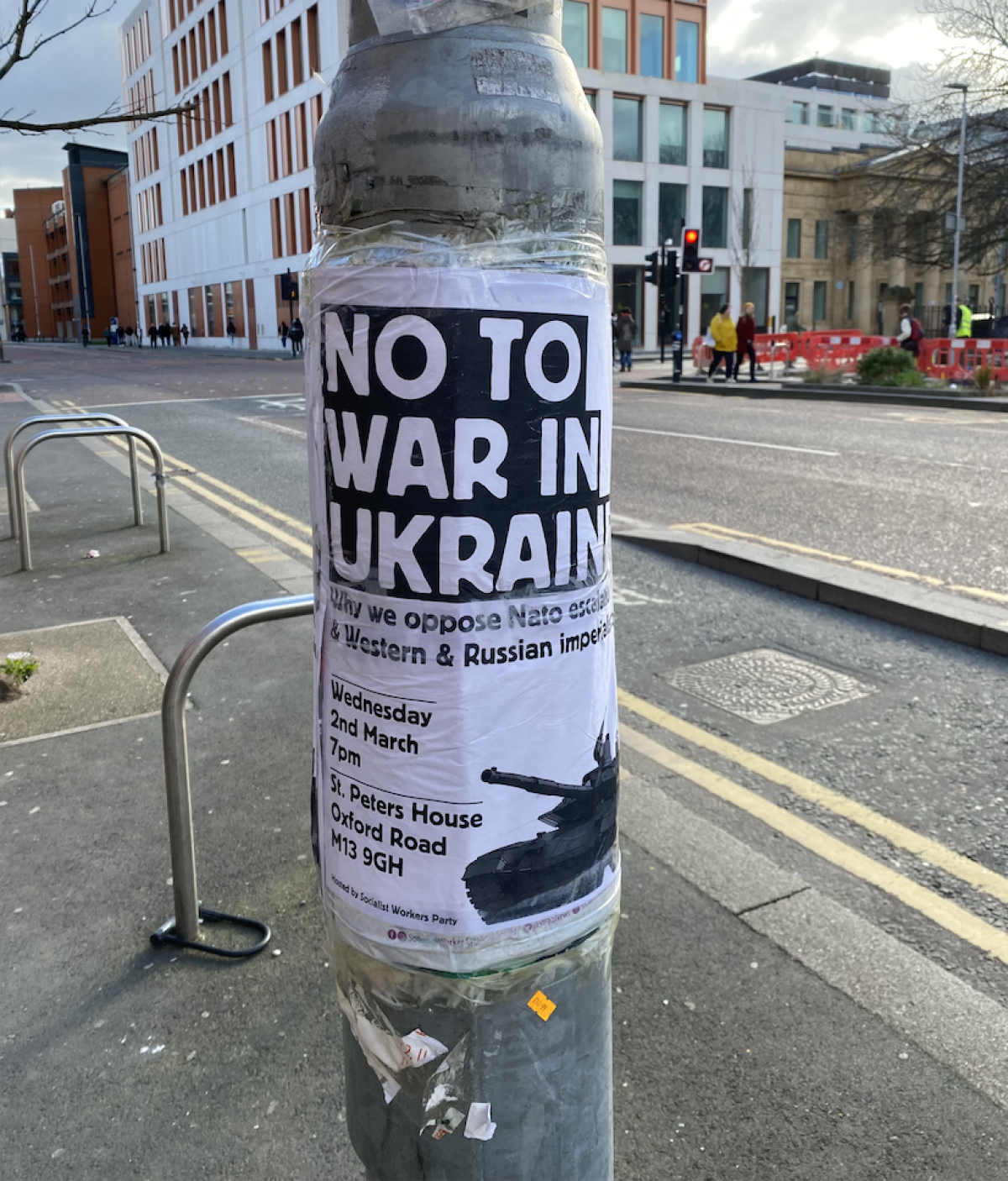“Where will we be next?”: In conversation with students from the Ukrainian Society and YEM

The situation in Ukraine remains uncertain with an unclear idea of Putin’s intentions or how far he will go.
Russia recently enlisted 16,000 recruits from the Middle East, and peace talks between Ukraine and Russia having seen nothing very promising, according to President Vladimir Putin’s spokesman Dmitry Peskov.
It is clear that there may still be a long way to go, with ongoing shelling in nearly all cities of the Donestsk region and now a quarter of Ukrainians have fled their homes.
This is a major humanitarian crisis which has not settled after 5 weeks of ongoing attacks on Ukraine.
This has had a major impact on students at Manchester, particularly those from Ukraine and the surrounding countries who remain unsure of whether their borders will remain secure or not.
I spoke with the President of UkrSoc, Maria Horb, a member of UkrSoc, Olersandr Prykhodko and the President of YEM, a pro-European youth organisation in Manchester, Martin Penov on how this war has impacted them personally and how the university and students have responded to the crisis.
Both Maria and Olersandr are originally from Kyiv and have therefore been significantly impacted by the invasion.
Maria explained how “it’s been weird with your family moving somewhere else … I don’t know when I will come home, if, and where so that obviously a lot of pressure.”
Olersandr has also been impacted by the uncertainty of his family’s living situation, describing how “my immediate family is out of danger … thankfully we did manage to get my aunt and her daughter out but, my grandparents are still in the Ukraine and that’s a bit worrying,” especially when everywhere is currently being shelled.
There is also discussion about countries surrounding Ukraine being unstable due to the war. Martin is from Bulgaria and shared; “students around the region [of Ukraine are] just panicking … sending messages or calling their friends like ‘Where will we be next?’ as nobody knows what to do.”
They went on to suggest the response of the university and support system offered, has not gone far enough. Martin described how the university has “extended mental health support, which if you know anyone who’s ever used the mental health support, it’s not doing much, at least from what I’ve seen so far. Especially, in this situation because these people [counsellors] are not trained to deal with students who are going through a war.”
However, he noted “we did get a statement from the Vice Chancellor which was a nice show of support at least, but actual stuff they’ve done to help, there’s not been that much yet.” Olersandr also spoke on this describing how the support he received was from mainly from his tutor, “it’s mostly one on one with my tutor and I’ve had some support from him, but on an official basis, I wouldn’t say there’s been a lot.”
In contrast, support from students has been overwhelming, particularly from Eastern European societies. According to Martin, the Students’ Union did not react to the crisis until Eastern European students put pressure on them to do something. Maria expanded by saying “for the first couple of weeks it was not us, it was the Polish Society who actually organised stalls. We got a lot of volunteers, probably more than we needed, but mainly led by heads of societies from countries that are surrounding the Ukraine”.
All three agreed that the majority of those getting involved were from Eastern European societies, is because they have a greater understanding of the history and geopolitics of the area which is important in order to properly understand this war. Martin even said “there was a noticeable difference I guess with some societies, not wanting to get involved or even talk about the conflict because they didn’t want to be political … but that was mainly societies which don’t have an Eastern European presence in them”.
If you would like to get involved in helping to support students on our campus as well as the crisis in Ukraine, there is a Just Giving Ukraine Appeal fundraiser advertised on the UkrSoc social media platforms.
A University of Manchester spokesperson said: “ We are deeply concerned about the effects of the invasion on our Ukrainian students and staff and we are making every effort to support them. We wrote directly to all Ukrainian students on 28 February with an offer of support. This includes our mental health and wellbeing service which is staffed by psychological therapists and mental health nurses who have training and experience in the impact of trauma and work closely with the NHS to facilitate referrals if appropriate.
“There are also mitigating circumstances procedures for study support and access to financial assistance on offer. We are really pleased that tutors are also offering personal support to their students.
“We are continuing to work hard to support people affected by the war, announcing a new £5m support fund last week which is the first in the sector and will provide scholarships for an initial 20 students and five, two-year fellowships to support staff fleeing conflict zones.
“We are really proud of how our staff are taking action – developing resources in Ukrainian to provide psychological advice for parents, sending a field hospital to Poland and evacuating students from Russia.
“All of this and more is detailed on our dedicated Ukraine microsite, which also includes support available outside the Universityhttps://www.manchester.ac.uk/ukraine-response/
“We will be contacting the Ukrainian Society to offer a meeting where they can raise any concerns and suggestions.”
The Students’ Union declined to make a comment.







